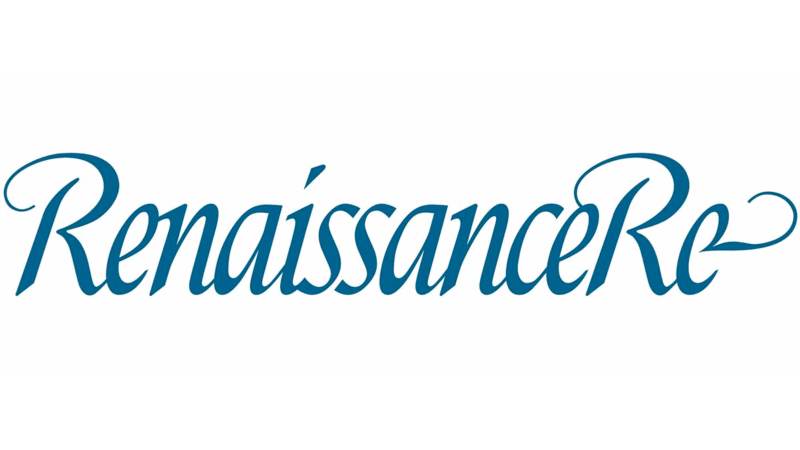Bermuda-based reinsurance firm and third-party capital management specialist RenaissanceRe has benefited from significantly higher fee income earned through its various third-party capital management and ILS fund activities in 2019.
 Management fees soared for RenaissanceRe (RenRe) in 2019, as its third-party capital assets under management increased significantly across the range of joint-venture and insurance-linked securities (ILS) strategies that the company operates.
Management fees soared for RenaissanceRe (RenRe) in 2019, as its third-party capital assets under management increased significantly across the range of joint-venture and insurance-linked securities (ILS) strategies that the company operates.
RenRe added to its third-party capital under management again in time for the key January 1st 2020 reinsurance renewals, following on from fresh capital raises in 2019 as well, in particular for its collateralised reinsurance and retrocession fund vehicle Upsilon.
That followed RenRe also raising over $700 million of new third-party capital from investors for its joint-venture and insurance-linked securities (ILS) vehicles in the second-quarter of 2019 and additional funds raised at the beginning of last year as well.
All of this fresh capital from third-party investors has helped RenRe to significantly boost its ILS and joint-venture managed capital pile, resulting in a significant increase to fee income earned.
RenRe has reported that joint-ventures drove just over $42.5 million of management fee income in 2019, while the managed ILS funds drove over $18.6 million of management fees and structured reinsurance and other related products that drive risk to capital drove $35.2 million.
In total, RenRe’s third-party capital related management fee income reported for the full-year 2019 was $96.42 million, a significant 36% uplift from the $71.16 million in full-year 2018, having risen from $50.19 million in 2017.
These increases are aligned with growing third-party ILS assets under management at RenRe and this fee income has become a significant contributor to the reinsurers earnings these days.
Performance fees are the other component of earnings RenRe makes directly from its ILS and joint-venture third-party capital management activities, these however reflect the impacts of catastrophe losses and loss creep, as you can only earn the performance component as positive performance allows.
For 2019 RenRe’s performance fees for its joint-venture vehicles reached $9.66 million (down on 2018’s $15.093m), the managed ILS funds only delivered $420,000 of performance fees (up on 2018’s $62k) , and the other structured products almost $7.7 million (near double 2018’s $3.58m).
So in total, RenRe’s third-party capital performance fees for full-year 2019 came out at almost $17.8 million, which is more than slightly down on the almost $18.74 million earned in 2018.
This reflects the continued impact of losses, with fresh catastrophe events such as typhoon Jebi and hurricane Michael likely having dented performance of these ILS related vehicles during the past year. Some further loss creep from prior year events is also likely a factor in the reduced level of third-party capital performance fees earned in 2019 for RenRe.
Overall, total fee income from third-party capital management activities rose strongly to almost $114.2 million in 2019 for RenRe.
Even given the dip in performance fees earned, that’s an impressive 27% increase on 2018’s almost $89.9 million and getting close to double 2017’s $64.5 million.
Of course, fee income earned from these third-party reinsurance capital activities is not the whole story of benefits to RenaissanceRe.
The company also benefits from the leverage this efficient capital provides it with, helping it to become a much more important player come renewal time.
Add in efficiencies that are generated by leaning on other investors capital, plus the retrocessional benefits and if quantified the total boost to RenRe’s operating performance is now very significant.
As the third-party assets managed by RenRe continue to rise, the amount of risk it is ceding to investors has increased further as well.
RenRe reports that it ceded $71 million more premiums in 2019 from its property segment, taking total property premiums ceded to $776.7 million.
The company said this is, “principally due to a significant portion of the increase in gross premiums written in the catastrophe class of business noted above being ceded to third-party investors in our managed vehicles, in particular Upsilon RFO, as well as an overall increase in ceded purchases.”
Reflecting the significant growth in third-party assets managed, which in turn drive the fee income increases, RenRe reports that balance-sheet assets related to its Upsilon RFO vehicle reached $3.1 billion at the end of 2019, up 41% on the end of 2018’s figure of $2.2 billion.
Upsilon, which allocates investor capital to investments in collateralised reinsurance and retrocession, has clearly been able to take advantage of improved market conditions, helping it to raise fresh capital along the way.
As of the end of December 2019, RenRe’s participation in the risks assumed by Upsilon RFO was reported as 16.5%.
Upsilon and Medici have been the beneficiary of much of the capital raising that RenRe achieved in recent months it seems, as its ILS fund strategies grew in size significantly over the period.
Medici ended the year accounting for $632 million of noncontrolling interests, a roughly 50% increase on the end of 2018.
RenRe has put significant effort into capital raising in 2019, which will have built it an investor base likely ready to support any ambitions to upsize again in 2020.
With reinsurance and retrocession rates up and set to rise further at future renewals, there’s every chance RenaissanceRe’s third-party capital under management increases again in the coming months.
 View all of our Artemis Live video interviews and subscribe to our podcast.
View all of our Artemis Live video interviews and subscribe to our podcast.
All of our Artemis Live insurance-linked securities (ILS), catastrophe bonds and reinsurance video content and video interviews can be accessed online.
Our Artemis Live podcast can be subscribed to using the typical podcast services providers, including Apple, Google, Spotify and more.






























